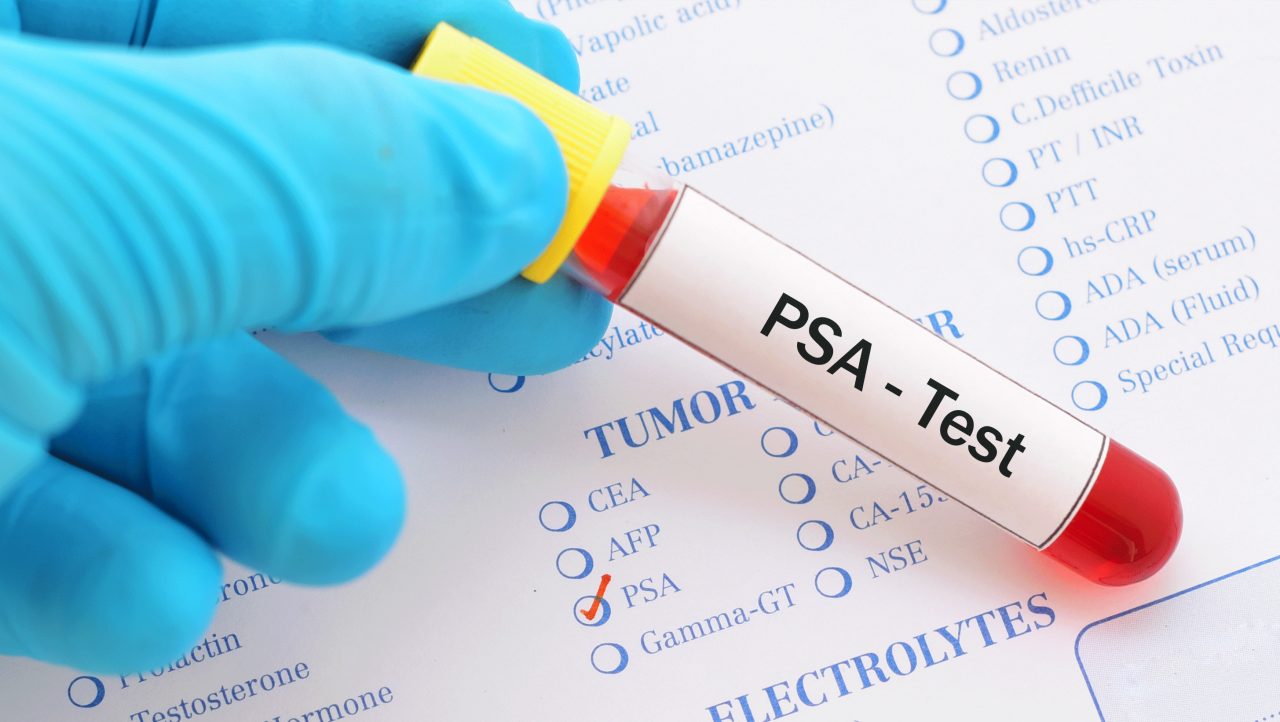What Is a PSA Test?

A PSA test measures prostate-specific antigen as part of prostate cancer screening. But PSA test results alone don’t mean you have cancer — or are cancer-free.
Prostate cancer is the third most common malignancy in the U.S., and more than 11 percent of American men will be diagnosed with the disease sometime during their life, according to the National Cancer Institute (NCI). So, odds are, you either know, or will know, a man who faces prostate cancer or is at risk for the disease.
While it’s common knowledge a PSA test is part of prostate cancer screening, understanding exactly what is a PSA test and what the results mean can be confusing.
Although a PSA test can help you and your doctor decide whether a biopsy for possible cancer is warranted, a PSA test, by itself, can’t determine you have cancer, or that you don’t.
YOU MIGHT ALSO LIKE: Watchful Waiting Is Safe for Prostate Cancer
What does a PSA test measure?
PSA stands for prostate-specific antigen, a protein produced by prostate gland cells. PSA is made in the prostate, whether a man has cancer or not.
PSA is primarily found in semen, but a small amount is also in blood. That’s why a PSA test involves taking a simple blood sample that is sent to a laboratory for analysis. The results are reported as nanograms of PSA per milliliter (ng/mL) of blood.
There’s not an absolute number showing a man has a malignancy in his prostate. In fact, the PSA levels can be higher in men who are cancer-free and may also be normal when they do have cancer.
However, the PSA test often finds higher than normal PSA levels in men with prostate cancer, the NCI explains, and, depending on what the doctor and patient decide is appropriate, an above average PSA test result may warrant further testing. A biopsy is the definitive way to find out if a man has prostate cancer.
What is a PSA test result indicating cancer?
The American Cancer Society (ACS) points out most men with PSA levels less than four ng/ml of blood do not have prostate cancer, and most men who do have the malignancy usually have levels over four.
In all, men with a PSA level between four and 10 have about a one in four chance of having prostate cancer, according to the ACS. What’s more, if the PSA level is greater than 10, the odds of having the disease are more than 50 percent.
If your PSA level is high, your doctor may advise having a prostate biopsy to find out if you do have cancer. However, depending on your specific situation, you may be advised instead to wait for a while and have the test repeated.
Bottom line? Several non-cancer factors can influence PSA test results
Your PSA test may register as high for reasons other than having prostate cancer. For example, PSA levels tend to go up slowly over time as you age. So, a potentially worrisome elevated PSA level in a 50-year-old is not necessarily worrisome in a man who is 80.
Some health problems, primarily benign prostatic hyperplasia (a non-malignant enlargement of the prostate that is not uncommon in men as they grow older), can increase PSA levels. Inflammation or an infection of the prostate gland also causes PSA levels to rise, the ACS points out, while obesity can result in PSA levels being low, even if a malignancy is present.
Having a PSA test shortly after ejaculation may cause PSA levels to temporarily register higher than normal, too. In addition, taking the male hormone testosterone, or other treatments that raise testosterone, may cause an elevated PSA test result.
Make sure your doctor is aware of any medication you take when you discuss PSA testing. These drugs may cause PSA levels to register as low, even if you have prostate cancer:
- 5-alpha reductase inhibitors. Medications prescribed to treat urinary symptoms and BPH, including finasteride (Proscar or Propecia) and dutasteride (Avodart), can lower PSA levels.
- Aspirin. Some studies have shown men taking aspirin regularly, especially non-smokers, may have lower PSA levels. Although more research needs to be done about this potential link, the ACS advises telling your doctor, prior to a PSA test if you take aspirin regularly for a health condition.
- Thiazide diuretics: Often called “water pills,” drugs like hydrochlorothiazide (HCTZ) are frequently used to treat high blood pressure. Taking a thiazide diuretic over many years is associated with low PSA levels.
YOU MIGHT ALSO LIKE: Don't Panic if You Have an Elevated PSA
Updated:
February 07, 2020
Reviewed By:
Janet O’Dell